- Home
- Destinations
- Hamburg
HamburgView all the popular packagesOffers
0 Popular Packege(s)
Hamburg at a Glance
Hamburg's historic label, âThe gateway to the worldâ, might be a bold claim, but Germanyâs second-largest city and biggest port has never been shy. Hamburg has engaged in business with the world ever since it joined the Hanseatic League back in the Middle Ages. Its role as a centre of international trade in the late 19th and early 20th centuries brought it great wealth (and Unesco World Heritage recognition in 2015), a legacy that continues today: it's one of Germany's wealthiest cities.
Hamburgâs maritime spirit infuses the entire city; from architecture to menus to the cry of gulls, you always know you're near the water. The city has given rise to vibrant neighbourhoods awash with multicultural eateries, as well as the gloriously seedy Reeperbahn red-light district. Hamburg nurtured the early promise of the Beatles, and today its distinctive live- and electronic-music scene thrives in unique harbourside venues.
The city's attractions are only matched by its inherent tempting spirit. Come, Hamburg says, have a ball.
Area 755 Square Kilometers
Population 1787408 Million
Winter Temperature The coldest is January at 0°C (33°F)
Summer Temperature July is the hottest month in Hamburg with an average temperature of 17°C (62°F)
Best Time To Visit May and October are the warmest months of Hamburg and also the main tourist season. Fall season with its brisk weather, fewer crowds is the best time to visit the city.The best time to visit Hamburg is the months between May and September when warm weather sweeps through the city. This also means that room rates are high, flights are packed and swells of tourists pour in. For fewer crowds and potentially lower hotel prices (room rates remain pretty steady year-round), visit in the fall. The weather will be brisk with temperatures in the 50s and 60s, but the benefits might be worth the chill.
BY AIR

Hamburg has the fifth-largest international airport in Germany, so arrival by plane is an obvious choice for those visiting from far away. There are plenty of connections within Europe, although only a few intercontinental direct services are offered. Low cost carriers Ryanair & Wizzair, as of autumn 2016, operate flights to a host of european destinations including (but not limited to) London Stansted (England), Shannon and Dublin (Ireland), Glasgow Prestwick (Scotland), Stockholm Skavsta (Sweden), Milan Bergamo (Italy), Pisa (Italy), Kiev (Ukraine), Skopje (Macedonia) and Gdansk (Poland). The airport has been thoroughly modernized with new terminals, airport hotel, streamlined infrastructure, and facilities that are by and large adequate, so you won't get lost. Depending on the gate your flight arrives at or leaves from, walking longer distances might be necessary as on any other airport too.
BY TRAIN
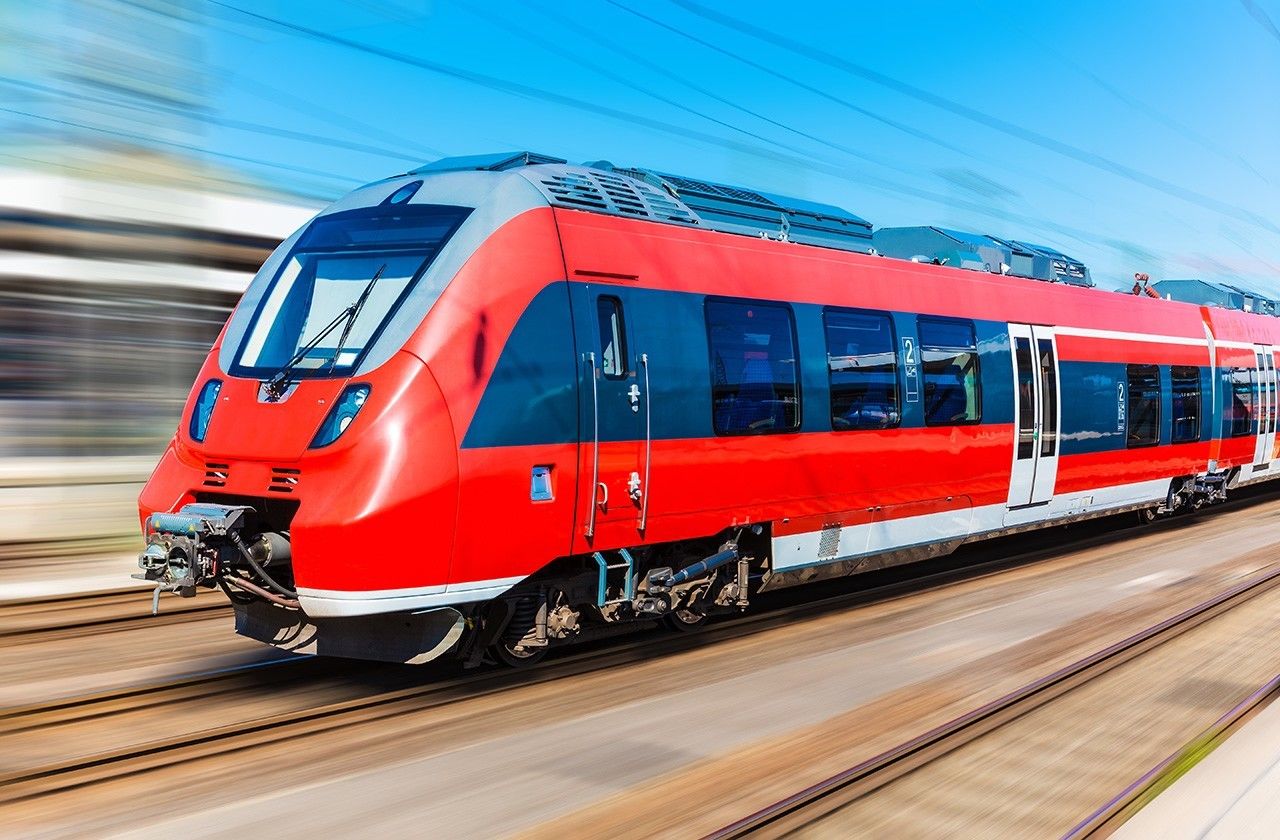
Hamburg has five major stations: Hauptbahnhof (central station), Altona, Dammtor, Harburg, Bergedorf. Various types of train service are available.
⢠ICE (Inter City Express) high speed train service to or from most major German cities, including Berlin, Cologne (Köln), Dusseldorf, Frankfurt, Munich also to Basel and Zurich (Zürich) Switzerland. There are usually hourly service to most destinations during the daytime.
⢠Direct service to or from Copenhagen and Aarhus (Denmark), Budapest (Hungary), Prague (Czech Republic), Vienna (Austria), and Bratislava (Slovakia).
DB Autozug also operates car transport and sleeper trains to several European destinations
Port of Hamburg Cruise
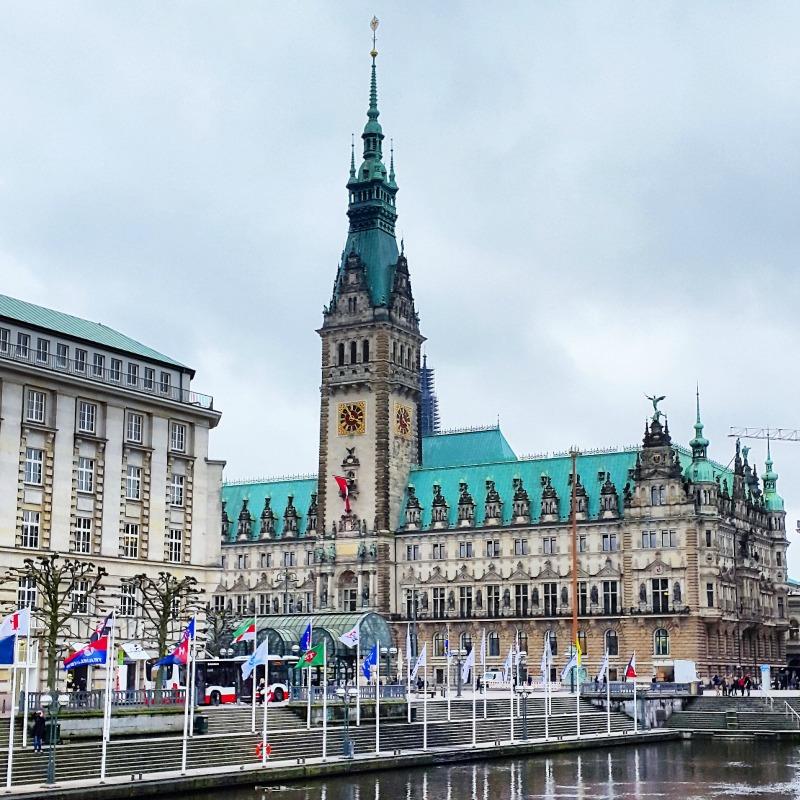
Get a spectacular view of one of the worldâs largest ports from the vantage of the water. With Hamburgâs skyline providing the backdrop, you board a boat for engaging stories about the sea trade as you glide by the historic Speicherstadt warehouse complex, luxury yachts and container terminals.
The Port of Hamburg is also known as Germanyâs Gateway to the World, as varied ships pass through here by the thousands on their way to all corners of the earth. This cruise provides an intriguing overview of the cityâs maritime traditions and present commercial significance.
Watch the horizon change as vessels of all types jockey for position. Sail past shipbuilding wharfs and giant shipping containers, and admire the rejuvenated Speicherstadt, a trendy and vibrant district with plenty of shops, restaurants and bars to keep visitors and locals alike busy.
Mönckebergstraße
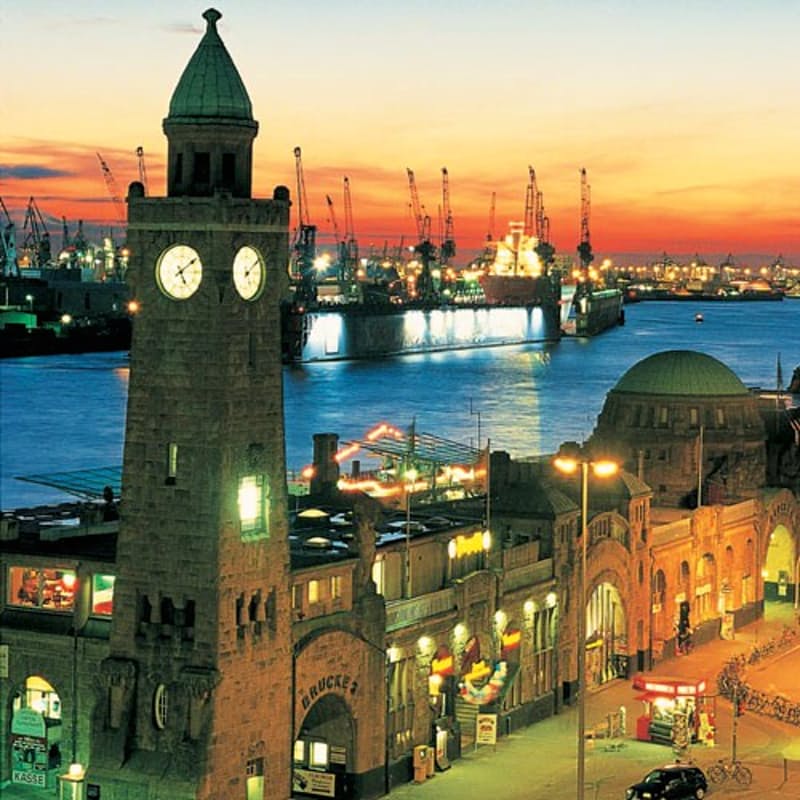
The area west of Hamburg's central railway station is mainly a shopping area with the streets Spitaler StraÃe and MönckebergstraÃe, leading to Hamburg's town hall. Close to the MönckebergstraÃe you find the churches St. Jacobi (at road Jakobikirchhof) and St. Petri (at road BergstraÃe), two of Hamburg's five main churches. Directly beside St. Petri there is the Hulbe-Haus, originally built as an arts and crafts house and dating from the beginning of the 20th century as most buildings around, but looking much older.
Behind the Hulbe-Haus, under the building of "Radio Hamburg", you can visit the remains of the bishops tower, from the 11th century. On the other side of the road, you can currently see excavations in progress, seeking the remains of the small fortress Hammaburg, which was erected in the 9th century giving Hamburg its name.
City Hall
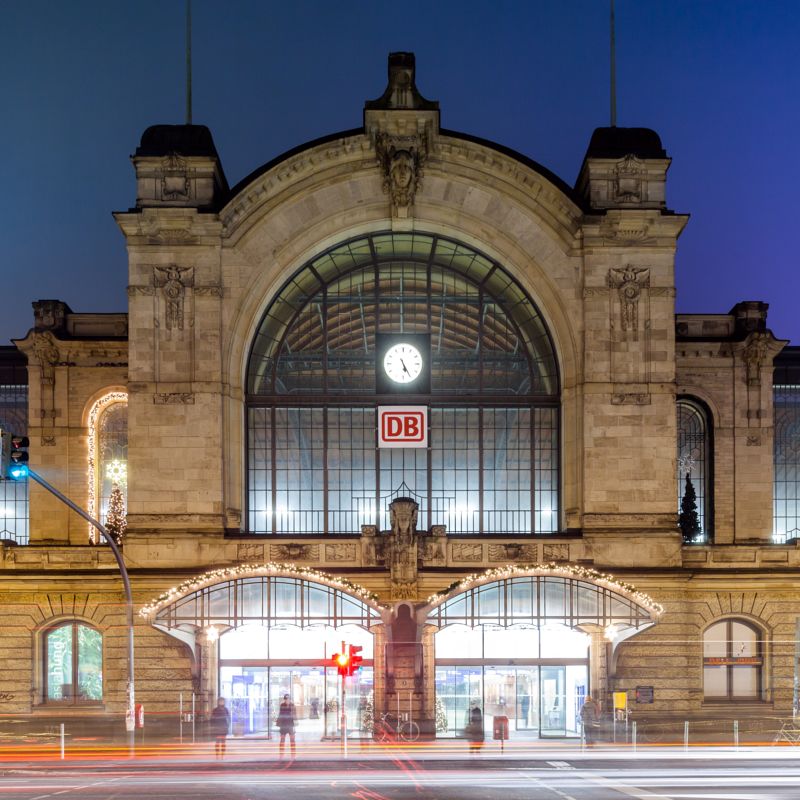
The MönckebergstraÃe ends at Hamburg's impressive city hall ("Rathaus"). It was built in 1897 out of sandstone in Neo-Renaissance style, including a 112 m tower. Inside there are several magnificent halls used for representative purposes and sittings of government and parliament. These can be visited in guided tours (M-Th 10AM-3:15PM, F-Su 10AM-1:15PM, half-hourly in German, hourly in English and French. Closed during official events. Admission is â¬4 for adults, â¬3 for Hamburg Card holders and free for children under 14 years of age).
The building behind the city hall is Hamburg's House of Commerce ("Börse"). Between the buildings, there is a little place called Rathaushof with its fountain Hygieia-Brunnen. The place in front of the city hall is the Rathausmarkt, hosting many events especially in summer.
Binnenalster on a sunny day
North of the Rathausmarkt, you find white arches at a canal called Alsterarkaden. The whole area behind is full of indoor shopping arcades. The most well-known one is the Hanse Viertel.
Following the canal to the right and crossing the traditional shopping road, Jungfernstieg, you quickly get to the artificial lake Binnenalster. Boat tours take you to the even bigger artificial lake, AuÃenalster, directly behind the Binnenalster with lots of sailing boats in summer.
Europa Passage Hamburg
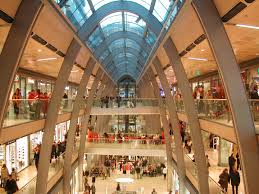
Ballindamm 40, 20095 Hamburg, Germany
Phone:+49 40 30092640
Hanseviertel - Einkaufspassage.
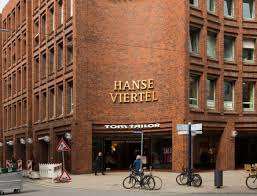
Groe Bleichen 30, Groe Bleichen 36, Poststrae 33, 20354 Hamburg, Germany
Phone:+49 40 3480930
Hamburger Hof
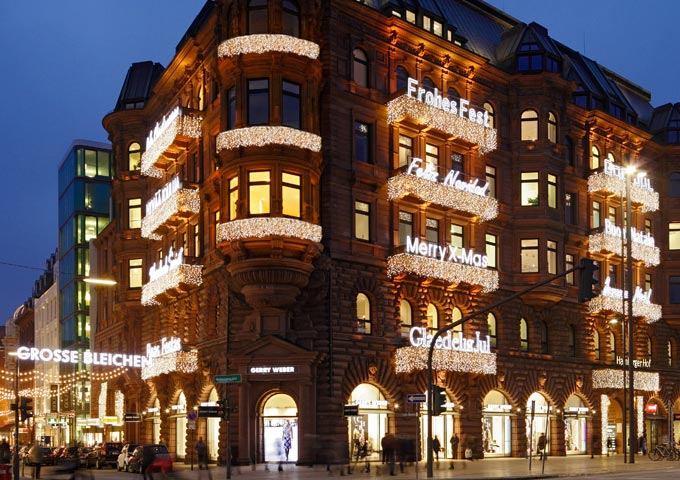
Jungfernstieg 26-28, 20354 Hamburg, Germany
Phone:+49 40 3501680
Restaurant Holstenhof
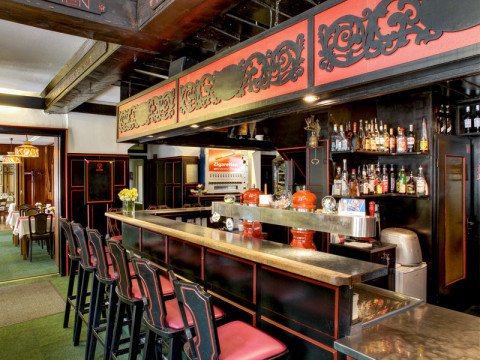
Lohbrugger Landstrae 38, 21031 Hamburg, Germany
Phone:+49 40 7399428
Eat-the-world Stadtfuhrung – Walking Tour in Hamburg
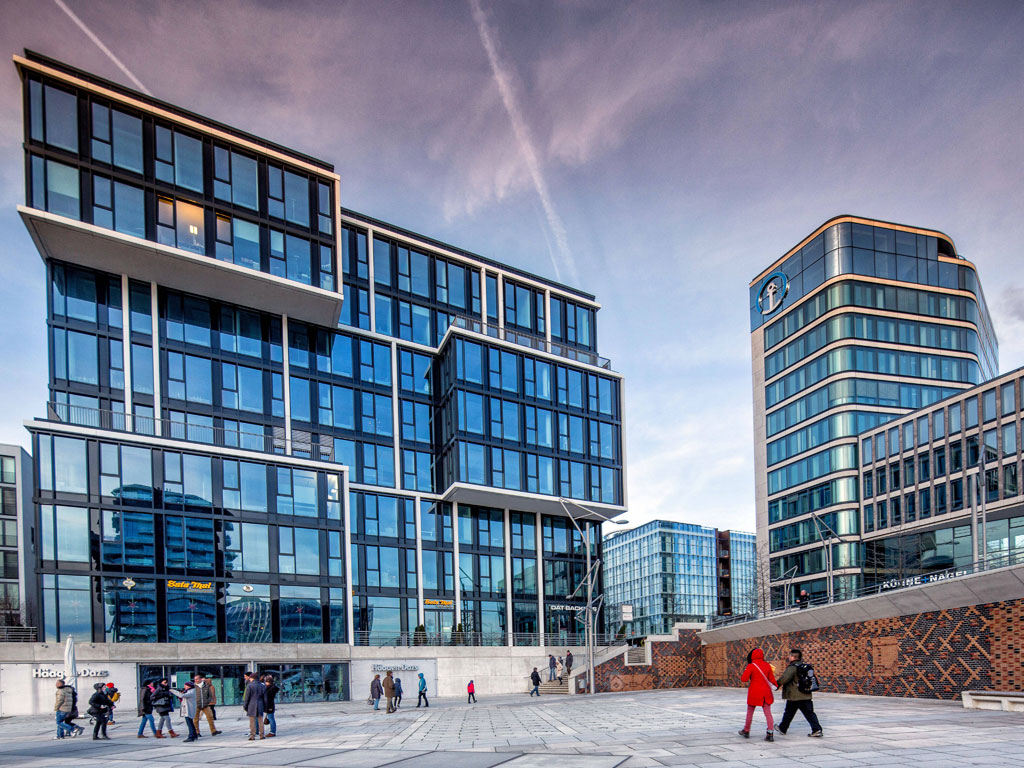
22767 Hamburg, Germany
Phone:+49 30 206229990
East Restaurant
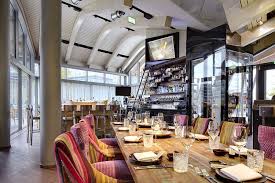
East Hamburg, Simon-von-Utrecht-Strae 31, 20359 Hamburg, Germany
Phone:+49 40 309933

